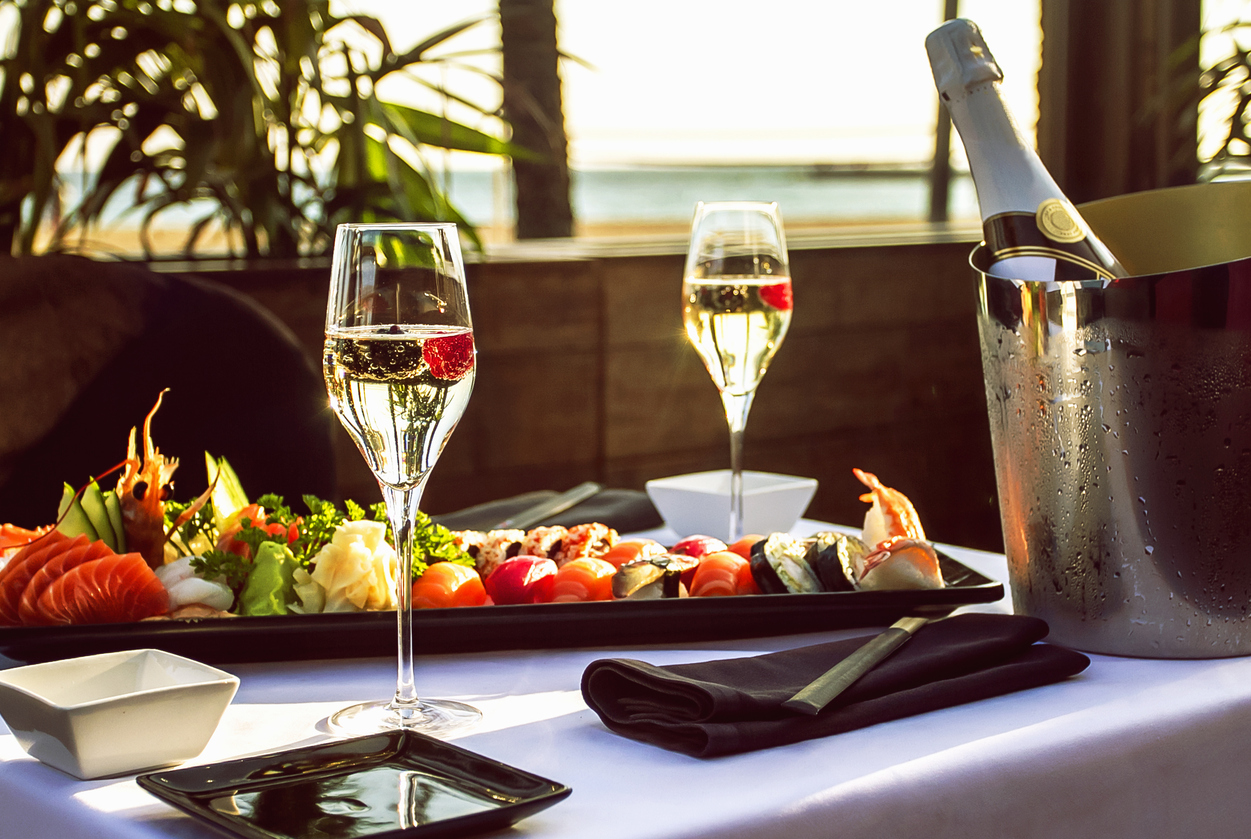Corporate hospitality can be an important part of winning new clients and improving your relationship with current clients. However, the line between getting it right and overstepping what’s appropriate can be a fine one. So here’s what to do, and just as importantly what not to do, when entertaining clients.
Do… think of corporate hospitality as an investment
Corporate hospitality is big business. In fact, corporate events are worth a whopping £1.2 billion to the UK economy annually, with 1.3 million business events held each year.
Unfortunately corporate hospitality doesn’t always come cheap, and treating clients may seem like an expense that’s difficult to justify. However research from STH Group has found that more than 80% of businesses believe it is ‘extremely effective’ at improving relations with clients, while 71% of clients who are treated to corporate hospitality events say they are likely to increase the amount they spend with that company as a result.
So think of corporate hospitality less as a bit of frivolous fun to be had with your clients, and more as an investment. If you consider your budget carefully, measure it against what you hope to achieve with the event, and follow the rest of the tips in this article, then there’s no reason why you shouldn’t see a solid return on that investment.
Do… tailor the event to your clients tastes
Corporate hospitality may be valuable but you still need to tailor the experience to the clients. Corporate experiences are specifically designed to be aimed at specific tastes, however an amazing experience for you may be a chore for your client.
For example, Smart Group run official hospitality packages at a number of world famous sports events which are all tailored to sports connoisseurs. To you, Smart Sport experiences such as a VIP package at Royal Ascot or Centre court tickets at Wimbledon might be an unforgettable treat. But if your target clients can’t stand sport, then this will not be the case for them.
David Spicer, director of UK events at agency Rodber Thorneycroft, believes many businesses invite clients to events without any consideration about whether the said client will actually enjoy the event. To remedy this Spicer suggests sending a questionnaire to clients asking them to list their favourite activities, remembering to include other personal preferences such as whether they prefer to attend during office hours or at the weekend.
Don’t… drink excessively
Drinking alcohol is often part of the fun of a corporate event, however, it can also go too far. The days of Mad Men-style corporate schmoozing with the Old Fashioneds flowing are becoming a thing of the past, but that doesn’t mean treating clients can’t be genuinely fun and enjoyable. It’s just about finding the right balance.
Drinking can play a part, but perhaps the event shouldn’t be centered around alcohol. You might consider taking clients to sporting events, or a restaurant, rather than a bar. For example, the Taste of London 2017 corporate event combines complimentary champagne with small plate taster dishes from some of London’s most prestigious restaurants. Alternatively, you could shun alcohol altogether. The Tough Mudder corporate packages involve putting you and your clients through a gruelling 12 mile mud and obstacle course. The Outdoor Adventure Company run a number have a number of fitness based corporate events if your client will feel more at home quad biking or whitewater rafting than in a luxury restaurant or bar.
Remember, excessive drinking and corporate hospitality can be a dangerous cocktail. Not only do you run the risk of giving off the wrong image about yourself and your business, you may end up being hit by a larger than expected bill afterward.
Don’t… act in a way that could be considered unethical
Businesses always need to pay attention to the 2010 Bribery Act. The Act has made it more complicated for businesses to organise or accept event invitations and gifts. Again, balance is key. Complimentary tickets to an England rugby hospitality event or corporate events at Wimbledon are perfectly acceptable, but a free lavish holiday or expensive jewelry is not really appropriate.
For there to be an offence, the prosecution must show that the client was offered something with the intention of inducing the person to perform a relevant function improperly or in the knowledge that acceptance of the gift would in itself be improper. The Bribery Act shouldn’t deter you from dipping your toes into the mutually beneficial world of corporate hospitality. The Act recognises that hospitality is an important part of doing business and building relationships with clients.
If you’re concerned about crossing the line, ask yourself if what you’re offering clients is appropriate according to the business relationship. Similarly, it is wise to tend to stick to smaller events than anything too flash or extravagant. If you’re still unsure, choose an established corporate hospitality event supplier. If you bear these things is mind, there’s no reason your business can’t benefit from corporate hospitality in an ethical and successful way.



 Bitcoin
Bitcoin  Ethereum
Ethereum  XRP
XRP  Tether
Tether  Solana
Solana  USDC
USDC  Lido Staked Ether
Lido Staked Ether  TRON
TRON  Cardano
Cardano  Avalanche
Avalanche  Toncoin
Toncoin